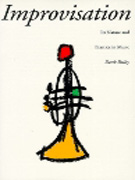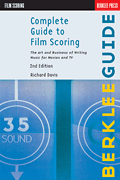IMPROVISATION
Its Nature and Practice in Music
Derek Bailey

Cat #: HC-0306805286
$18.00This item usually ships within 5 to 7 business days.
Questions?
Please call +1-518-587-1102 or email us.
Edition: Paperback, 1993
Description: 146 Pages
REVIEWS:
"This second edition is a welcome expansion and reorganization of Derek Bailey's seminal 1980 book on improvisation, originally titled Musical Improvisation ... Like Bailey's music, Improvisation is suggestive and contingent rather than a statement of certainties. Because of its breadth, it is essential reading not only for listeners and players of improvised music, but for aficionados of all types of music."
-Option
"This is the most important book on improvisation-the craft, the edge, the leap-that you're likely to meet."
-Wire
"A creative and highly original improvisor, Bailey has influenced a generation of guitarists in Europe and North America. His book ... treats perceptively the relationships among different traditions of improvisation."
-New Grove Dictionary of Jazz
"Through the voices of practitioners from a variety of fields, Derek Bailey's Improvisation insightfully examines its subject matter without really defining it ... Improvisation, with its pithy, easily comprehensible narrative, is a valuable tool for anyone interested in music at any level."
-Cadence
If you own this book and would like to submit a review, please email it to us: mail@ejazzlines.com
DESCRIPTION:
Derek Bailey's Improvisation, originally published in 1980, and here updated and extended with new interviews and photographs, is the first book to deal with the nature of improvisation in all its forms-Indian music, flamenco, baroque, organ music, rock, jazz, contemporary and "free" music. By drawing on conversations with some of today's seminal improvisors-including John Zorn, Jerry Garcia, Steve Howe, Steve Lacy, Lionel Salter, Earle Brown, Paco Peña, Max Roach, Evan Parker and Ronnie Scott-Bailey offers a clear-eyed view of the breathtaking spectrum of possibilities inherent in improvisational practice, while underpinning its importance as the basis for all music-making.







